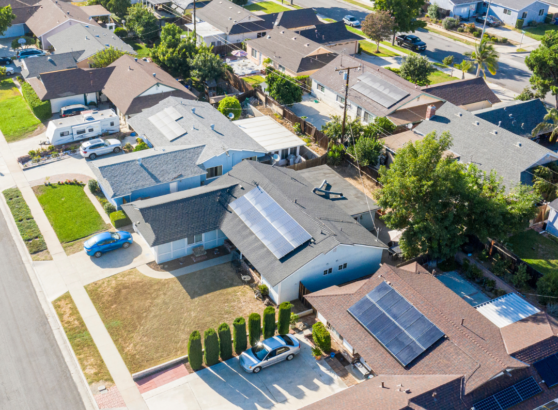In the quest for sustainable and cost-effective energy solutions, solar power has emerged as a significant contender against traditional power sources. Understanding the key differences between these energy options is crucial for making informed decisions about energy consumption and investment.
Environmental Impact Solar energy stands out for its minimal environmental impact. Unlike traditional power sources that often rely on fossil fuels, solar power is clean, producing no greenhouse gases during operation. Fossil fuel-based energy, on the other hand, contributes significantly to air pollution and global warming.
Cost-Effectiveness Initially, solar installations may seem more expensive than setting up traditional energy sources. However, in the long run, solar power proves to be more cost-effective. The decreasing costs of solar panels, combined with rising energy prices and various government incentives, make solar a financially viable option.
Energy Independence Solar power provides energy independence. Once installed, solar panels generate free power, reducing dependence on utility companies and susceptibility to fluctuating energy prices. Traditional energy sources, however, involve ongoing costs and reliance on external suppliers.
Maintenance and Longevity Solar panels require minimal maintenance and have a long lifespan, often exceeding 25 years. Traditional power systems, especially those dependent on machinery and fossil fuels, typically require more frequent maintenance and have a shorter operational lifespan.
Scalability and Flexibility Solar power systems are scalable and can be tailored to specific needs, whether for residential or commercial use. Traditional power grids are less flexible, often requiring significant infrastructure and are less adaptable to small-scale applications.
Renewable vs. Finite Resources Solar energy is renewable, harnessing the power of the sun, an inexhaustible resource. Traditional power sources like coal, natural gas, and oil are finite, leading to concerns about depletion and long-term availability.
Government Policies and Incentives Many governments around the world offer incentives for solar power installation, recognizing its environmental and economic benefits. These incentives are often not available for traditional energy sources, making solar a more attractive option.
While traditional power sources have been the backbone of our energy system for decades, solar energy offers a compelling alternative with numerous benefits. Its lower environmental impact, potential for cost savings, and energy independence make solar an increasingly popular choice for both individuals and businesses. As technology advances and awareness of environmental issues grows, the shift towards solar energy is likely to continue, reshaping our approach to energy consumption and sustainability.

















